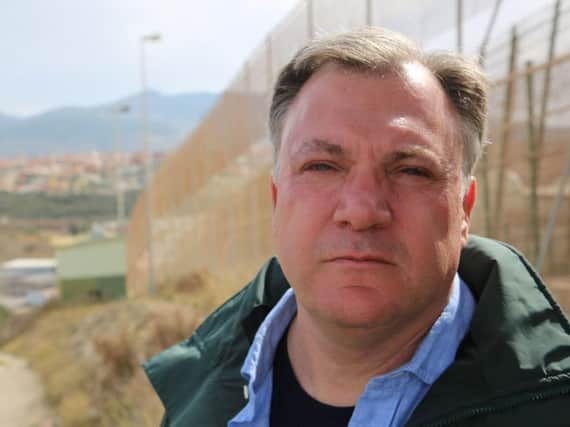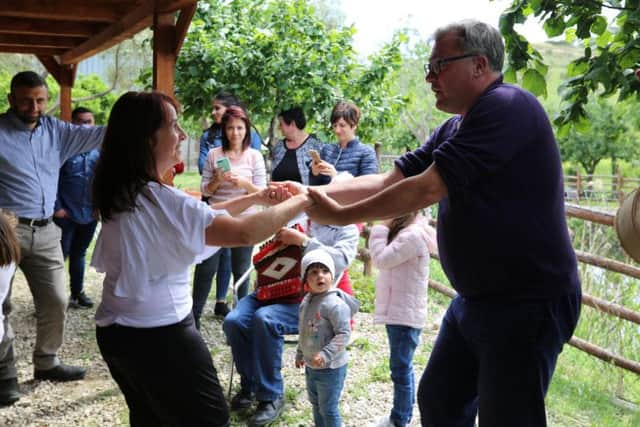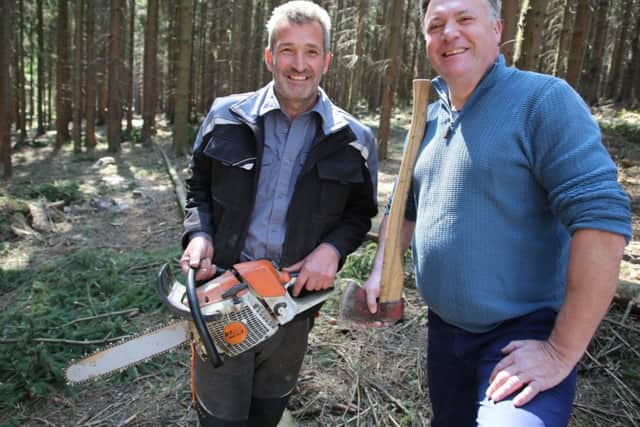Ed Balls on the rise of populism in Europe and his thoughts on Labour's leadership contest


The 2018 series, Travels In Trumpland With Ed Balls, saw the ex-Shadow Chancellor walk in the shoes of a variety of supporters of US President Donald Trump.
“I wanted to listen, and not to judge, and try and understand, and I didn’t think it was my job, in the programme, to be the person who directly challenged the contributor,” the Norwich-born presenter, 52, reflects.
Advertisement
Hide AdAdvertisement
Hide AdHe took a similar tack with his new factual entertainment show for BBC Two, Travels In Euroland With Ed Balls, in which he explores the rise of populism in six different countries across Europe – Holland, Spain, Poland, Italy, France and Germany.


But, while filming this series, there were moments which “felt more dark and fearful”, he confides – partly, perhaps, because of the cultural and geographical closeness to the UK.
He recalls going for dinner at the house of a politician from the AfD, a right-wing to far-right political party in Germany.
“In the afternoon, I look at a poster which the AFD had used in the election. The poster is a pregnant white woman, and the slogan is ‘New Germans? We can breed our own’, and he has made a speech saying we should eject 200,000 migrants a year.
Advertisement
Hide AdAdvertisement
Hide Ad“I go and have dinner with him, we have a long conversation. It’s quite a challenging conversation – I didn’t particularly enjoy it. I wasn’t going to go in and stir the mash with him.


“I felt as though I needed to be a bit apart, and that was different from some of the times in Trumpland. So, there are moments where I’m a bit more cautious.”
What’s cooking for Labour? Ed Balls reveals recipe for Party to rise againIn the first episode, the affable former politician is in Holland, where he explores how cultural issues, “which go to a sense of national pride and identity”, can then be used by Trump-like populists to divide and get traction.
In Dutch tradition, Sinterklaas (St Nicholas) has a sidekick named Zwarte Piet, or Black Pete, who usually appears as a blackface character.
Advertisement
Hide AdAdvertisement
Hide AdBalls goes on set for a film about the character, who is said to go back centuries, and today still appears in parades across the country on December 5, the Dutch St Nicholas holiday.
“I had a sense it was going to be a challenge,” he notes. “But, actually, I had no idea there was going to be scores of these ‘Black Petes’, and they were all going to be white, and it was quite slapstick.”
Later, he elaborates frankly: “Your first reaction is to recoil, and I think, intellectually, I didn’t shift from that.
“But, at the same time, you come to understand why it’s so hard for the majority of Dutch people who are involved in this and why it’s such a potent issue for populist politics, because [Geert] Wilders [leader of the Party for Freedom, a nationalist, right-wing political party in the Netherlands] basically says, ‘You should be proud to be Dutch’, and for Dutch people and their kids, who grew up with this, they think, ‘Well, I don’t want to not be proud of my childhood or my Christmas traditions’.”
Advertisement
Hide AdAdvertisement
Hide AdWe move on to the state of politics in the UK right now. Asked how hopeless he feels about it, he seems a little unsure of how to answer, omitting a high-pitched “um”, before pausing, to gather his thoughts.
“Well, I worry about our societies allowing politics to drift to the sort of populist position where, if we disagree, I don’t simply disagree with you, ‘I condemn you, because you are bad and you are wrong and immoral’. That every time that somebody says they disagree with a decision, they say, ‘It’s because it’s the elite who’s trying to do this to you’. That consensus is a dirty word – that if we agree that somehow we are selling out,” he suggests, calm but direct.
“You know, if I say the national minimum wage was a good policy and the Tories end up agreeing with it, and therefore it became consensual, does that mean that by definition this was a Tory-lite policy and a sell-out?”
Making Big Ben bong for Brexit would cost half a million pound, PM revealsBalls spent 20 years in politics, best known as Gordon Brown’s right-hand man after serving as his chief economic adviser prior to becoming an MP himself in 2005.
Advertisement
Hide AdAdvertisement
Hide AdThe father-of-three, who is married to fellow politician Yvette Cooper, who has been MP for Normanton, Pontefract and Castleford since 2010, spent 10 years as an MP in Yorkshire before he lost his Morley and Outwood seat in 2015.
During his time in the House of Commons he became the Labour politician many Tories loved to hate, though you suspect this stemmed from a grudging respect for the Oxford and Harvard University graduate.
Since then he’s carved out a role as a brodcaster and continued with his work as an economist, though politics is never too far away.
Following Jeremy Corbyn’s decision to resign as leader of the Labour Party, MPs are currently throwing their name into the ring. The battle is set to continue until April 4, when the new leader will be announced.
Advertisement
Hide AdAdvertisement
Hide AdFour women have declared for the top job at the time of writing, including Shadow Foreign Secretary Emily Thornberry, Shadow Business Secretary Rebecca Long-Bailey and backbenchers Jess Phillips and Lisa Nandy.
Discussing the idea of a woman heading up Labour, Balls points out: “It’s not good that the Conservative Party have now had two women Prime Ministers, and the Labour Party is yet to have one. Because Labour has had two short-lived female leaders, but never elected, and never as Prime Minister. So, let’s hope.”
But he won’t let on who he personally thinks should be leader, saying he doesn’t think there’s a front runner. “What I do think is that, although I worry about the anti-elite, populist rhetoric at the moment, and the sort of sense of divisiveness, politics is now going to return to something a bit more familiar,” he divulges.
These Yorkshire films and TV shows will already be a decade old in 2020“We’re going to have a four-year term, we’ve got a Prime Minister with a clear majority, we’re not going to have the chaos of the last two to three years, we’re not going to have lots of unusual groupings in Parliament and governments unable to make decisions.”
Advertisement
Hide AdAdvertisement
Hide AdHe continues passionately: “Who Labour chooses as leader and how they do the job – and whether they do this in a way which is about not only being an effective opposition but building a mainstream alternative, which can reach into the centre ground – I think that’s going to become much more important.
“If Labour chooses a leader who can do that, that will be good. Good for politics, actually, aside from Labour in a partisan way. And if Labour has a leader who sits more to the extreme, then I think that will probably be bad for our democracy.”
Travels In Euroland With Ed Balls starts on BBC Two on Thursday January 23.